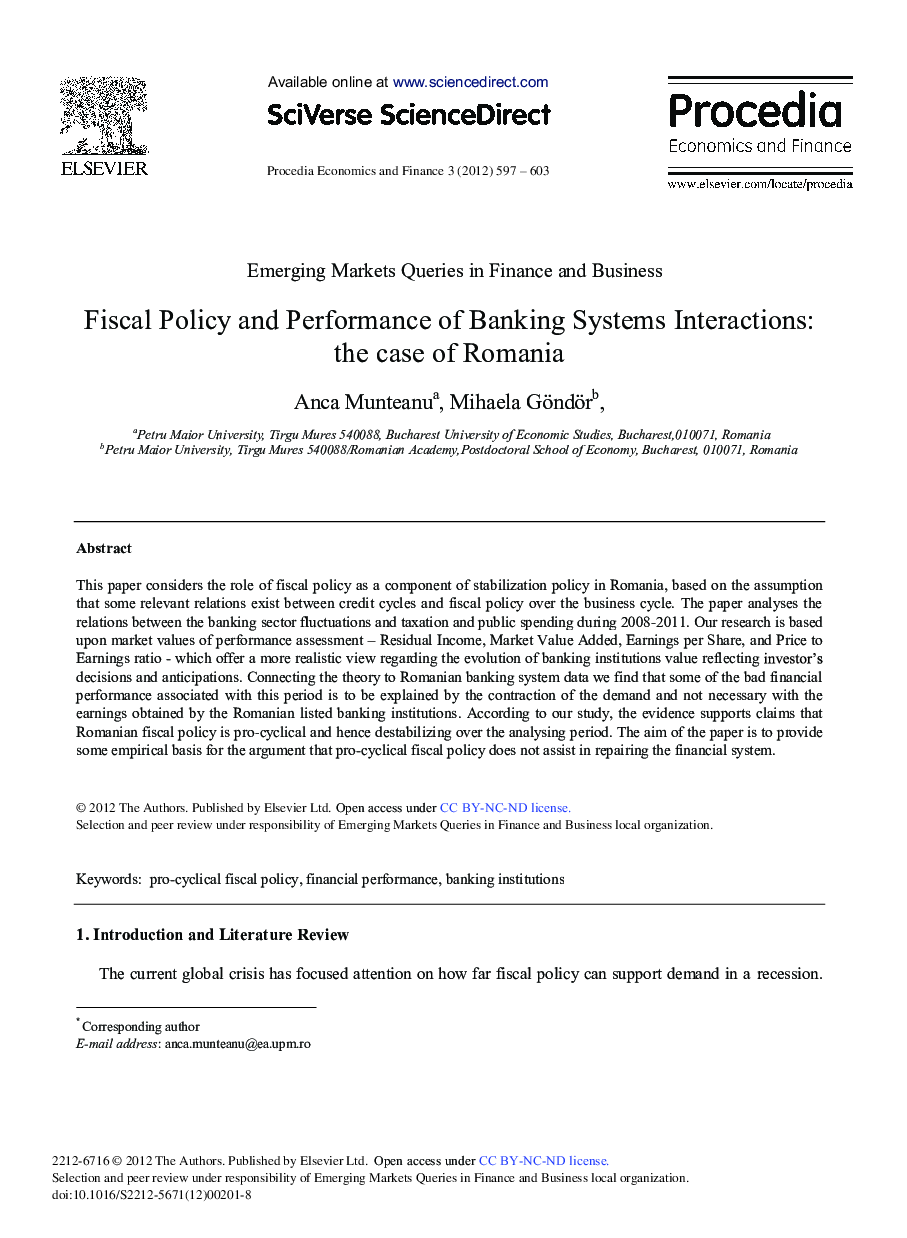| Article ID | Journal | Published Year | Pages | File Type |
|---|---|---|---|---|
| 982134 | Procedia Economics and Finance | 2012 | 7 Pages |
This paper considers the role of fiscal policy as a component of stabilization policy in Romania, based on the assumption that some relevant relations exist between credit cycles and fiscal policy over the business cycle. The paper analyses the relations between the banking sector fluctuations and taxation and public spending during 2008-2011. Our research is based upon market values of performance assessment – Residual Income, Market Value Added, Earnings per Share, and Price to Earnings ratio - which offer a more realistic view regarding the evolution of banking institutions value reflecting investor's decisions and anticipations. Connecting the theory to Romanian banking system data we find that some of the bad financial performance associated with this period is to be explained by the contraction of the demand and not necessary with the earnings obtained by the Romanian listed banking institutions. According to our study, the evidence supports claims that Romanian fiscal policy is pro-cyclical and hence destabilizing over the analysing period. The aim of the paper is to provide some empirical basis for the argument that pro-cyclical fiscal policy does not assist in repairing the financial system.
